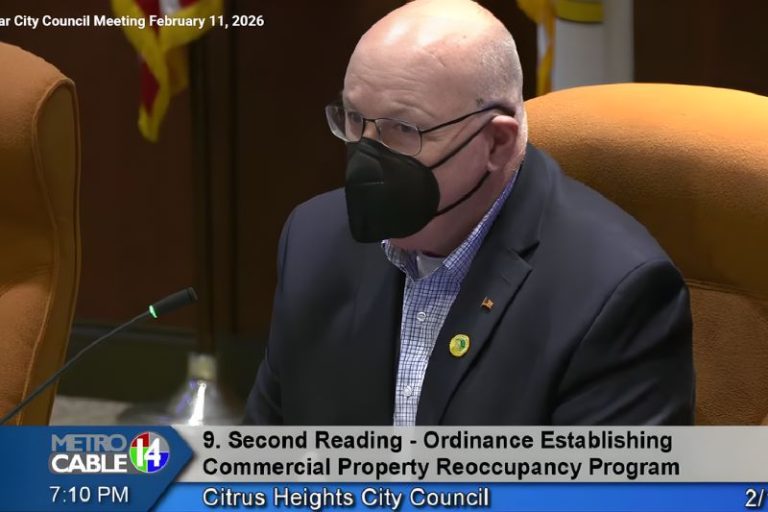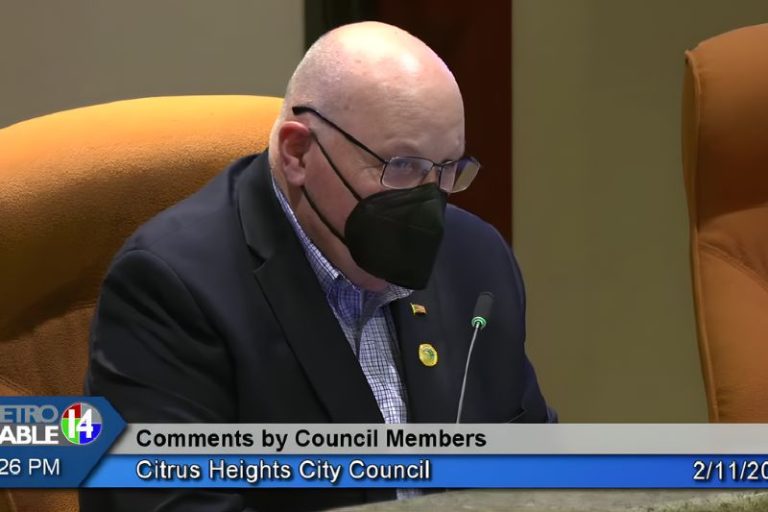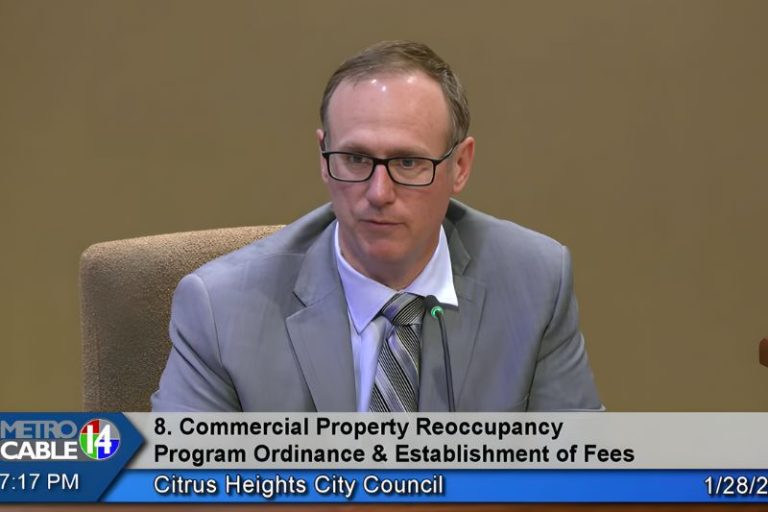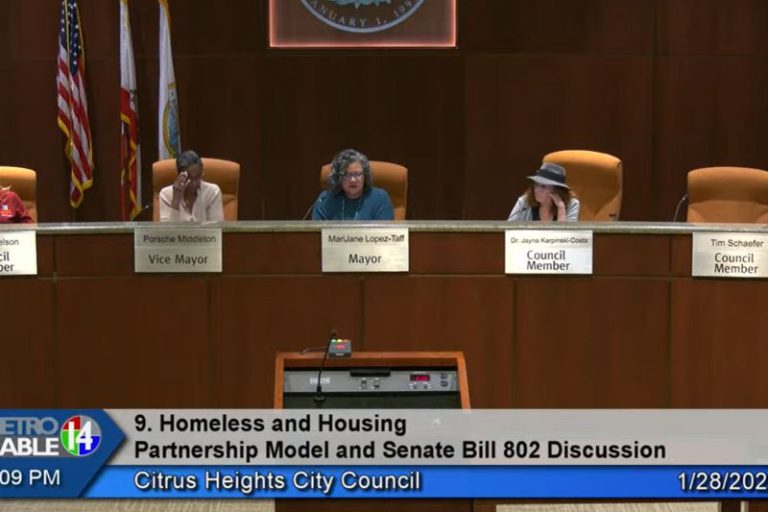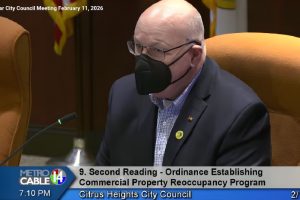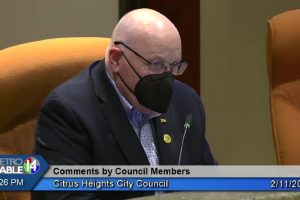Sentinel staff report–
Fees paid for most new housing and development are about to get more expensive in Citrus Heights, after the City Council voted 4-1 to significantly increase certain development impact fees on Thursday in an effort to keep up with inflation.
The updated fees will affect new development of homes as well as new commercial developments and redevelopment, designed to help offset the gradual impact of new development on the city’s infrastructure. The four fees collected by the city are affordable housing fees, a roadway/transit fee, fire facilities fee, and park impact fee, some of which had not been adjusted for inflation for decades.
The one-time fee collected to go towards affordable housing will nearly double per-square-foot fees paid for new commercial, hotel, and office projects, while the most significant jump in fees will increase the park impact fee by 465% on single-family residential and as high as 569% for residential development with five or more attached units.
The park fee will increase the fee paid to build a single-family detached home by about $5,000 and will add close to $3,000 more for a mobile home. Additionally, a revised roadway impact fee will increase the current fee of $1,434 per single-family unit to $2,614 per unit.
Councilwoman Jeannie Bruins noted that the park fee will be a direct increase in the cost of building a new house, which “will have a direct impact on what the person who built that house sells it for.” She and Vice Mayor Tim Schaefer advocated for a motion to phase in the park impact fee over a period of five years to make the increase not as abrupt, which was adopted by the council.
Council members voting in favor of the updated fees acknowledged it was hard to stomach at a time when inflation is at near-record highs, but noted the fees had not kept up with annual inflation.
“This is probably the hardest piece that I struggle with, that we waited so long to implement these, and the timing couldn’t possibly be worse when we’re seeing inflation out of control, where we’re seeing the cost of living going up,” said Schaefer. “When we start talking about affordable housing in California, we keep increasing the fees and asking people, or requiring people, to have solar on their homes and all these additional requirements that drive the cost of housing up, and so I really am struggling with doing this.”
Out of three options presented in a staff report, Schaefer advocated for increasing fees to the regional average, which was the lowest increase of the options presented. Other options were to raise fees to match what the original cost would have increased to when accounting for inflation at 3% annually, or matching the fees to Sacramento County’s current fees — both of which would have resulted in even higher fees.
Schaefer was joined by Councilwoman Jeannie Bruins, Mayor Porsche Middleton, and Councilman Steve Miller in voting for the updated fees, with the exception of fire impact fees which were passed 4-1 with Schaefer opposing and Daniels supporting.
Daniels said the fire impact fee increases, in some cases only a 7% increase, were “pretty reasonable” and necessary to support a critical service, but opposed increasing the other fees.
“Any fee increases will push somebody out of the market. Somebody will suffer for any rise in fees that we do tonight,” said Daniels. “There’s not a single fee that doesn’t impact taxpayers here.”
No members of the public spoke during a public hearing held just prior to the vote on the fee increases, but two residents submitted letters that were read out loud during the meeting. One shared concern that increased fees would result in more weed-filled lots being left undeveloped, and another questioned the timing of the fee increases, citing inflation and a surplus city budget.
A statement was also read from Kathilynn Carpenter, executive director of Sunrise MarketPlace business improvement district, who voiced opposition to commercial development fee increases, saying: “These increases are quite significant, and with the economy and retailers recovering from a pandemic, this would have a deleterious effect on development.”
What are impact fees?
Impact fees are imposed on new development in an effort to “ensure that new growth pays its fair share and that existing residents and businesses do not shoulder the burden associated with the incremental need for new infrastructure and facilities presented by increasing population or service demands,” a staff report says.
The fee increases were needed due to the fees not being updated for decades, without accounting for rising costs and inflation, according to the report.
According to a city staff presentation, the city’s affordable housing fee was last updated in 1992, the roadway/transit fee in 1988, park impact fee in 1999, and fire facilities in 2014. Fees are governed by state law, AB 1600, which requires fees to only be charged on new development, prohibits them from being used to offset existing deficiencies, and requires a Nexus Study to show rough proportional impact and establish a ceiling for fees.
The ceiling accounts for the full mitigation cost, but city staff said imposing the full cost “could be a barrier to development,” so a lower fee was recommended. The staff report also noted that affordable housing, roadway, parks and fire improvements can typically “obtain a variety of subsidies or grants in order to be built over time.”
The city spent approximately $98,000 preparing the Nexus Study, and staff said costs would have increased further if council action was not taken before July 1, when new requirements from AB 602 relating to impact fees go into effect.
Moving forward, fees will be adjusted to match inflation annually, with the exception of the park impact fee, which will be adjusted for inflation once the full increase is phased in after five years. A full staff report and details on impact fee rates can be found in the City Council’ June 23 agenda packet. (Click here)
Want to share your thoughts on impact fees and development in Citrus Heights? Submit a letter to the editor online by clicking here.

